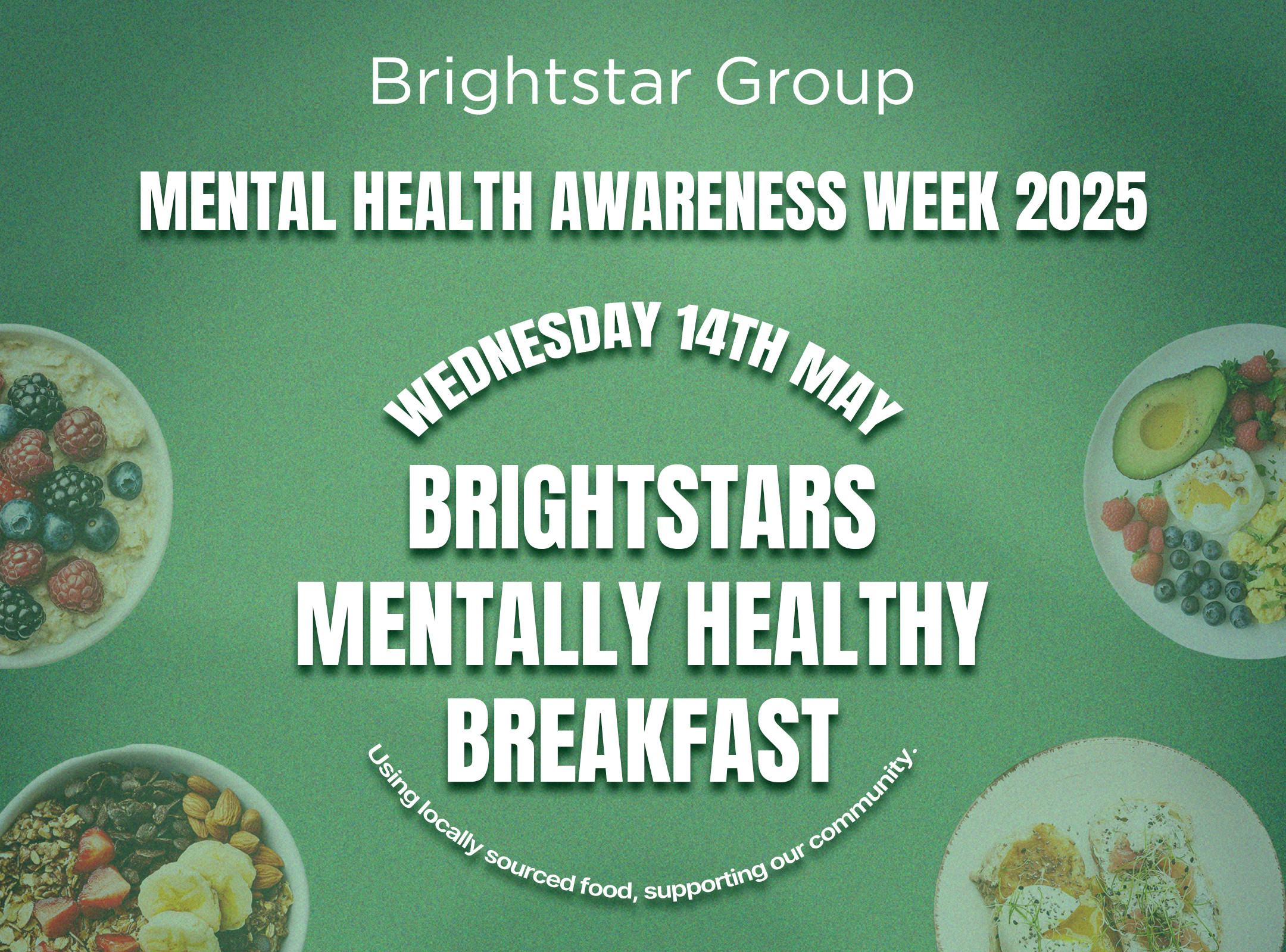MENTAL HEALTH AWARENESS WEEK 2025
Eating yourself mentally healthy!
During Mental Health Awareness Week 2025, the Brightstar Group will be treating the team to a delicious and nutritious breakfast, aimed at supporting good mental health. For centuries we have known that food affects our mood and mental health. Eating ‘clean’ not only helps you gain more energy, release toxins, and release weight, it also allows for mental well-being. A recent study found that vitamin deficiency causes a decline in mental health which leads to stress, anxiety, depression, addictions and other psychological disorders.
Natural yoghurt and Mental Health
Natural yoghurt, especially those containing probiotics, may have a positive impact on mental health, potentially reducing symptoms of depression and anxiety. Some studies suggest that probiotics, particularly Lactobacillus, can influence mood and cognitive function. This is thought to be due to the gut-brain connection and the ability of the gut to produce neurotransmitters like serotonin and dopamine
Nuts and Mental Health
Nuts can positively impact mental health by providing essential nutrients, reducing stress, and improving gut health, which is linked to mood and cognitive function. Specific nutrients like omega-3 fatty acids, magnesium, and vitamin E found in certain nuts can also contribute to brain health and help manage anxiety and depression.
Fruit & Vegetables and Mental Health
The nutrients found in fruit and veg have a positive impact on our brain chemistry, which in turn influences our mood, memory and cognitive abilities. Similar toits depression reducing capabilities, a diet high in fruit and vegetables reduces the risk of being diagnosed with an anxiety disorder.
Oats and Granola
Oats are a whole grain that can keep you in good spirits all morning. You can enjoy them in many forms, such as overnight oats, oatmeal, muesli, and granola.They’re an excellent source of fibre. Fibre helps slow your digestion of carbs, allowing for a gradual release of sugar into the bloodstream to keep your energy levels stable. In one study, those who ate 1.5–6 grams of fibre at breakfast reported better mood and energy levels. This was attributed to more stable blood sugar levels, which is important for controlling mood swings and irritability.
Try antioxidants!
A study by the Journal of Nutritional and Environmental Medicine in 1998 found that antioxidants can help perk up the mood of people affected by anxiety and stress. Foods with high levels of antioxidants include blueberries.






